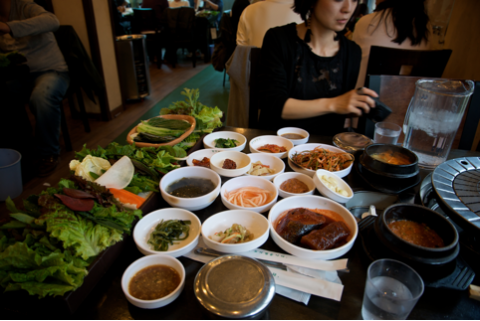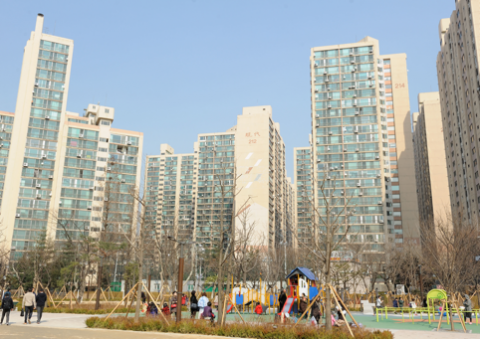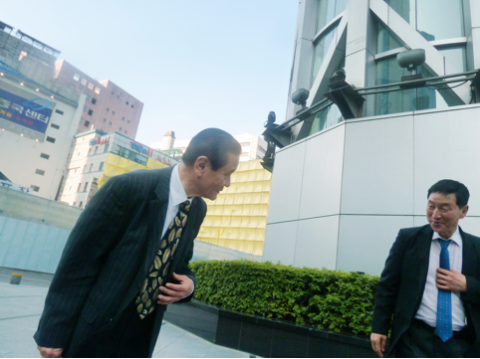Don't miss out on the best jobs!
Subscribe to HelpGoAbroad and weekly we will sent you an email with latest job posts. Provide your email address below
There are thousands of people that move to live in South Korea every year, but among this population is a number of people who find the differences to be too great and end up moving back to their home countries. It is definitely worth researching the challenges and differences you are likely to encounter before moving to South Korea, so then you can plan on how you will adapt to deal with these changes. It is also worth noting that while Seoul is quite cosmopolitan and is often familiar to Western visitors, much of the rest of the country can be very different to the cultures found in other parts of the world.
The Demands Of Working Life In South Korea
The South Koreans are a hard working people, and they will expect you to contribute your fair share when it comes to shouldering the burden, so you can often expect to be working up to 55 hours per week on a regular basis. South Korean employers will also usually offer a much lower level of vacation than most people will be used to, so it is worth discussing the hours and holidays with your potential employer before committing to the move to South Korea.
The other side of the coin is that although you will be expected to work hard, the rewards in South Korea are very competitive, and there is a good night life to enjoy in most parts of the country. By making friends with your colleagues, you are likely to be sharing a few drinks to unwind on a regular basis too.
Interacting With Your Neighbors And Colleagues
One of the biggest cultural differences is that the script and language in South Korea is homogenous, meaning it can be quite difficult to understand and to learn the language and the script when you first arrive. Try and make an effort to take classes in Korean before arriving in the country, and especially if you are going to be living outside of Seoul, it is worth trying to learn as much of the written Korean as you can as well.
While you may not be a master of Korean before arriving in the country, the only way you will improve your language skills is be speaking it with locals, so make the effort and your neighbors and colleagues will be happy to help. Having a social circle is an important part of living in South Korea, so talk to as many people as you can and enjoy their responses as you make new friends.
Food And Dining Etiquette
South Korean cuisine is another part of the culture that can take some getting used to, and if you are not a fan of spicy flavors, then you may need to try a few of the local dishes before you find the items that you can enjoy. There are quite a complex set of rules when it comes to formal dining in South Korea, and waiting for the oldest people at the table to sit and then to start eating is very important. You should also remember that it is rude to pick up a rice bowl from the table as is common in Japan and China, while you should also never pour your own drink, but make sure that your neighbor at the table has enough, so they will do the same for you.
Living In Korean Cities
One of the most difficult things to adapt to after moving to Korea is how different their cities are to the majority of western cities. The population is quite compressed, and most people will live in fairly small spaces, which means that it is important to be ready to go out and to enjoy communal spaces and to eat regularly at restaurants or at friends' houses. As well as learning to live in a relatively limited space, also make sure that you learn to navigate the city quite quickly, and being able to understand the signs can make a big difference to how you adapt to living in the country.
Respect For Your Elders
The culture in Korea is one that is much more geared towards the elder generation than in many other countries, and the system of honorifics in the Korean language is just one aspect that you have to master. It is also traditional that when speaking to elders in Korea that the younger person doesn't make too much direct eye contact with the elder person, while it is also polite to shake their hand with both hands. If you are given a gift by an older member of the family or group you are working with, bow gently, and it is also polite not to open such a gift in the presence of the giver.
National Pride In Korea
One aspect to consider when interacting with other South Koreans is that their culture is unique in Asia, having developed almost unmolested by other influences in the region. One of the most visible ways in which this is displayed is in the rivalry and negative sentiment that many people will have against Japan. Widely known as the Sea of Japan, South Koreans call this ocean the East Sea, and the best advice is to try and avoid the issues of international politics and the role of South Korea, as many people will become impassioned on the subject.
Sign in to publish a comment



Be the first to comment on this post.